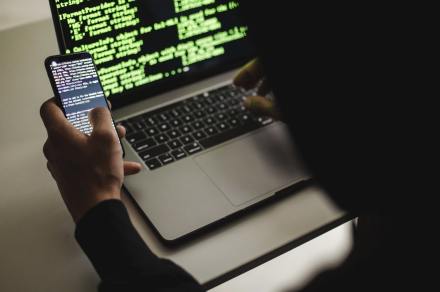Your information was probably stolen again: Researcher discovers 184 million stolen logins
Sora Shimazaki / Pexels
In another stark reminder of the constant threats online, cybersecurity researcher Jeremiah Fowler recently uncovered a massive, unsecured database containing over 184 million login credentials from Microsoft, Apple, Facebook, Discord, Google, PayPal and others. The trove amounted to approximately 47.42 GB of data, was discovered on a misconfigured cloud server and is believed to have been amassed using infostealer malware – malicious software designed to extract sensitive information from compromised devices.
Recommended Videos
A global breach with far-Reaching implications
According to Jeremiah, the database also contained over 220 email addresses associated with government domains from at least 29 countries, such as the United Stated, United Kingdom, Australia, and Canada. The breadth underscores the potential national security risks posed by such breaches.
Fowlers analysis of a 10,000-record sample revealed that the data included plaintext usernames and passwords, with some entries linked to financial terms like “bank” and “wallet,” indicating a heightened risk of financial fraud. The presence of such sensitive information in an unprotected database amplifies concerns about identity theft, unauthorized access and other malicious activities. Hackread.com has some images from the database provided by Jeremiah.
The role of infostealer malware
Infostealer malware operates by infiltrating devices through phishing emails, malicious websites, or comes bundled with pirated software. Once installed, it can harvest a variety of data, including login credentials, cookies, autofill information and even cryptocurrency wallet details. The data is then transmitted to command-and-control servers operated by cybercriminals.
The discovery of this database suggests a coordinated effort to collect and potentially exploit vast amounts of personal and institutional data. The lack of identifiable ownership or metadata within the database further complicates efforts to trace its origins or intended use. Hosting companies likely do not know that they are fostering these databases to begin with.
Immediate actions and recommendations
Upon discovering the database, Fowler promptly notified the hosting provider, World Host Group, which subsequently took the server offline. However, the duration for which the data remained exposed and wither it was accessed by unauthorized parties before its removal remains uncertain.
I would advise users to:
Change your passwords, yet again: Immediately update your passwords for all online accounts, especially if the same passwords are being re-used across multiple platforms
Enable two-factor authentication: This generally requires a text verification code to your phone, or a secondary email address
Monitor your accounts: Regularly check your financial accounts and other sensitive accounts for suspicious activity
Use reputable security software: Anti-virus and malware software from reputable companies usually help, make sure they are updated. You can check out our antivirus and malware reviews
Be cautious with emails and downloads: Avoid clicking on suspicious links or downloading attachments from unknown sources
#your #information #was #probably #stolen
Your information was probably stolen again: Researcher discovers 184 million stolen logins
Sora Shimazaki / Pexels
In another stark reminder of the constant threats online, cybersecurity researcher Jeremiah Fowler recently uncovered a massive, unsecured database containing over 184 million login credentials from Microsoft, Apple, Facebook, Discord, Google, PayPal and others. The trove amounted to approximately 47.42 GB of data, was discovered on a misconfigured cloud server and is believed to have been amassed using infostealer malware – malicious software designed to extract sensitive information from compromised devices.
Recommended Videos
A global breach with far-Reaching implications
According to Jeremiah, the database also contained over 220 email addresses associated with government domains from at least 29 countries, such as the United Stated, United Kingdom, Australia, and Canada. The breadth underscores the potential national security risks posed by such breaches.
Fowlers analysis of a 10,000-record sample revealed that the data included plaintext usernames and passwords, with some entries linked to financial terms like “bank” and “wallet,” indicating a heightened risk of financial fraud. The presence of such sensitive information in an unprotected database amplifies concerns about identity theft, unauthorized access and other malicious activities. Hackread.com has some images from the database provided by Jeremiah.
The role of infostealer malware
Infostealer malware operates by infiltrating devices through phishing emails, malicious websites, or comes bundled with pirated software. Once installed, it can harvest a variety of data, including login credentials, cookies, autofill information and even cryptocurrency wallet details. The data is then transmitted to command-and-control servers operated by cybercriminals.
The discovery of this database suggests a coordinated effort to collect and potentially exploit vast amounts of personal and institutional data. The lack of identifiable ownership or metadata within the database further complicates efforts to trace its origins or intended use. Hosting companies likely do not know that they are fostering these databases to begin with.
Immediate actions and recommendations
Upon discovering the database, Fowler promptly notified the hosting provider, World Host Group, which subsequently took the server offline. However, the duration for which the data remained exposed and wither it was accessed by unauthorized parties before its removal remains uncertain.
I would advise users to:
Change your passwords, yet again: Immediately update your passwords for all online accounts, especially if the same passwords are being re-used across multiple platforms
Enable two-factor authentication: This generally requires a text verification code to your phone, or a secondary email address
Monitor your accounts: Regularly check your financial accounts and other sensitive accounts for suspicious activity
Use reputable security software: Anti-virus and malware software from reputable companies usually help, make sure they are updated. You can check out our antivirus and malware reviews
Be cautious with emails and downloads: Avoid clicking on suspicious links or downloading attachments from unknown sources
#your #information #was #probably #stolen
·65 مشاهدة









